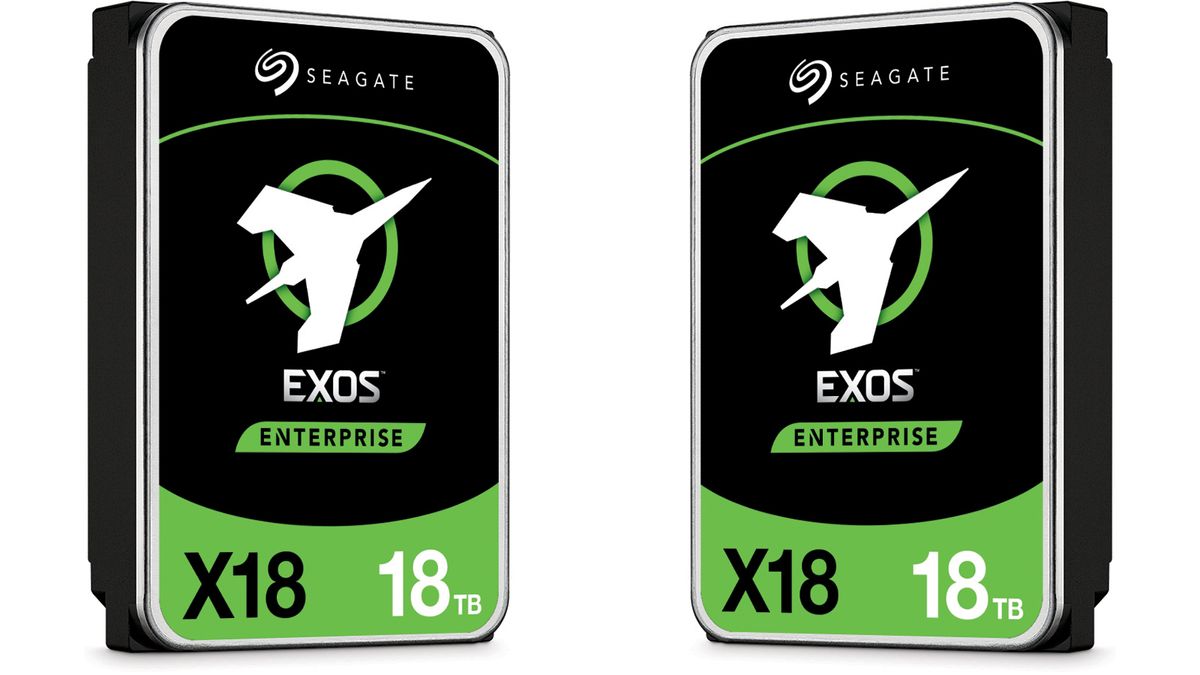German Seagate customers say their 'new' hard drives were actually used – resold HDDs reportedly used for tens of thousands of hours
-
I can tell your lieing, because your pants are on fire.
-
Since the other answer is desktop use, if in Linux your best bet is
smartctl. -
-
No no, that was the old washer setting pants on fire.
-
-
My parents bought a beach house (a bungalow on a postage stamp, before anyone gets an ideas that we're some 1%ers) and it came with an old washer dryer. My old man put a single pair of jeans in the dryer and seemingly forgot about them. He says he did it for a timer. Leaves the house. Nobody there for a week. My mom comes in, dryer still running, jeans essentially translucent at this point. One of the things you can laugh at only because it wasn't a tragedy.
-
Western Digital used to be great. Don't know if they still are. I never had an issue with any of my HDDs from them (I only ever bought the high end stuff though)
-
I do; I use a four pass destructive run of badblocks on new drives before implementing them.
-
…when they were actually decent hard drives for the price.
And had a five year warranty.
-
WD has been treating me well, but the most recent batch had been hgst he10 from server part deals from a couple years back so I can’t comment on the more recent drives.
-
Fucking people are wild.
-
At least they aren't paving stones
-
A bit less than 20 years ago a new PC arrived in our home, and some of the letters on the drive inside it said "Seagate Barracuda". And that drive lasted longer than the motherboard in that box (and the CPU's integrated graphics started gradually failing a few years before that, so I was using a cheap discrete card).
Point is, I have good associations with the brand, sad that it's become this bad.
-
Way back when SSD were prohibitively expensive for poor student me way back when, they came up with Momentus XT; I don’t know if they were the first hybrid HDD/SSD, but it was my first foray into flash storage. I had the earlier version with controller such that should the flash memory dies, I’d still have access to the HDD.
It, was, glorious…
I hear you. The brand is really not what we remembered them to be.
-
If you look at the data, Seagate is also some of their oldest drives, and some of their most used. Likewise, they have almost no WD drives, yet that's what you recommend below.
I'm not saying you should or should not buy Seagate drives, I'm just saying that's not what you should be taking away from that data. What it seems to say is that Seagate drives are more likely to fail early, and if they don't, they'll likely last a while, even in a use case like Backblaze. Some capacities should be also avoided.
That said, I don't think this data is applicable to an average home user. If you're running a NAS 24/7, maybe, but if you're looking for a single desktop drive (esp if it's solid state), it's useless to you because you won't be buying those models (though failure rates by capacity apply since they likely use the same platters).
-
Yes, buy NAS or enterprise drives for a NAS, don't buy consumer drives.
-
In my home server my Seagates have been dying one after another, I have replaced each failed one with a Toshiba and they have been rock solid so far
-
Yeah, we did that at my last company to make sure our hardware was up to spec. We deployed an IOT device for long term outdoor installations, so it needed to survive very hot temps. We had a refrigerator we gutted and added heat to, and we'd run a simulation with heavier than expected load for a couple days and tossed/RMAd the bad units.
That was a literal burn in, but the same concept ak applies to pretty much everything. If you build/buy a PC, test the hardware (prime95 CPU test, memtest for RAM, etc). Put it through its paces to work out the major bugs before relying on it so you don't have to RMA a production system.
-
I had bad experiences with Seagate between 2002 and 2009. Multiple, sudden, premature drive failures under ideal operating conditions. I haven't bought a Seagate drive in over 10 years.
WD enterprise grade hardware is still good for me, as of 2 years ago. Their customer service sucks but the hardware is still good
In general I tend to go for Toshiba or Hitachi (rebranded to a different name if I recall...) if I have a preference. I have some really old drives like 15+ years old still chugging along.
-
AFR is a percentage, 1 drive from a pool of 10 means 10%, 5 droves from 100 means 5%; so with regards to your point that they don’t have much WD drives, if they don’t have much WD, then each fail is even more detrimental on the chart, therefore making the data even more impactful.
When there’s a clear trend of higher failure rate represented as a percentage, I’m not going to volunteer my data, NAS or otherwise, as tribute to brand loyalty from a manufacture that’s gone downhill from the decades past.



